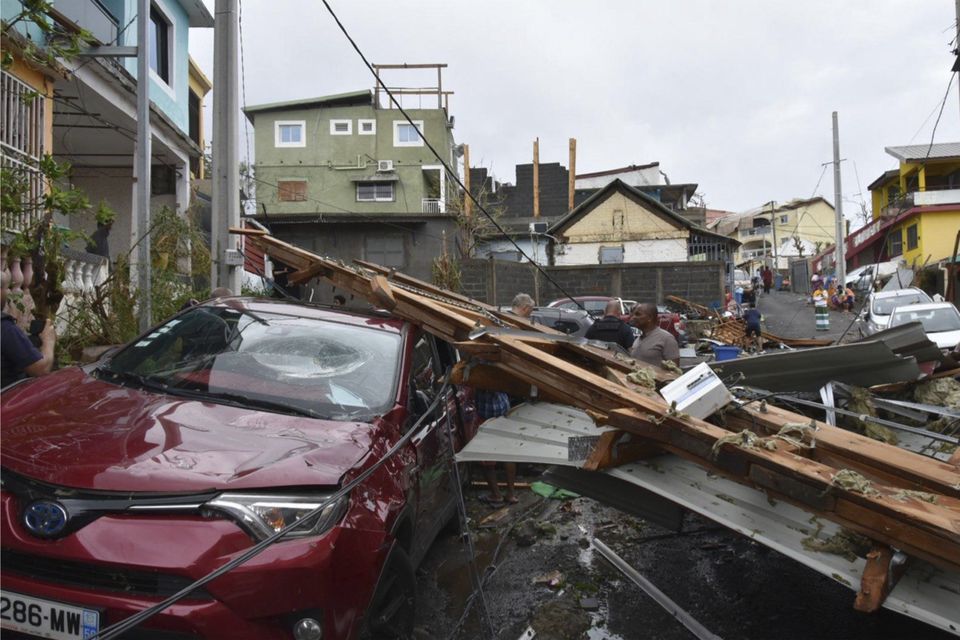French authorities on Tuesday announced an overnight curfew in Mayotte as they sought to stabilise the island territory in the aftermath of Cyclone Chido, the most intense storm to hit the Indian Ocean archipelago in 90 years.
The French military said it is sending four to five planes a day with up to 50 tons of assistance, including food, water and medicine.
Hundreds of military personnel have arrived since the weekend in Mayotte, an island group off Africa.
The official death toll from Saturday’s cyclone rose to 22 according to the latest report from Mayotte Hospital quoted by Ambdilwahedou Soumaila, the mayor of the capital, Mamoudzou.
Debris in a street in the Indian Ocean French territory of Mayotte (Ministere de l’Interieur/DICOM via AP)
The newly appointed prime minister, Francois Bayrou, provided an update later on Tuesday saying that more than 1,500 people were injured, including more than 200 critically.
However, authorities fear hundreds and possibly thousands of people have died.
French President Emmanuel Macron said he will be traveling to Mayotte soon.
“Our compatriots are living through the worst just a few thousand kilometres away, and I will be by their side in a few hours in Mayotte.”
“The priority today is water and food,” Mr Soumaila told RFI radio, adding that “there are people who have unfortunately died where the bodies are starting to decompose that can create a sanitary problem.”
The curfew requires people to stay in their homes between 10pm and 4am as authorities try to prevent looting of damaged buildings.
“We don’t have electricity. When night falls, there are people who take advantage of that situation,” Soumaila said.
Speaking on France Inter radio Tuesday morning, Mayotte lawmaker Estelle Youssouffa described the challenges in accounting for victims, especially among migrants.
“The real toll of those swept away by the mud, winds and tin from shanty towns will never be known,” Ms Youssouffa said.
“This population, by definition undocumented migrants, are the main victims of this tragedy because they feared going to shelters.”
